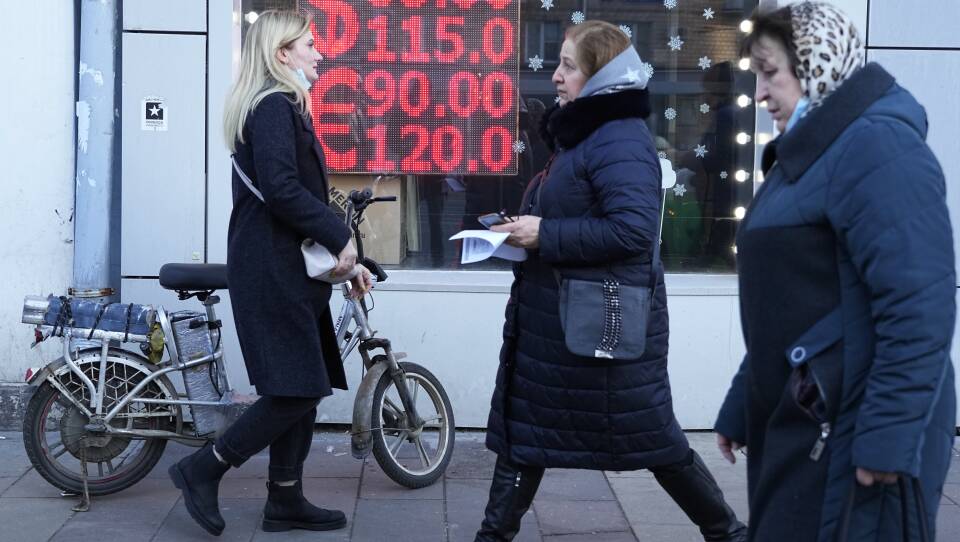In the days following Russia’s invasion of Ukraine, global leaders imposed a slew of sanctions targeting Russia’s economy. And while it is not clear they will slow the Russian invasion, financial experts largely agree that global sanctions implemented thus far are significant enough to make an impact on the Russian economy.
“[The U.S. and other countries are] trying to hinder the Russian government's ability to access their resources to wage war, to have those resources available to them as they take those actions,” Christine Abely, a professor of international business transactions and contracts at New England Law, told Boston Public Radio on Tuesday. “So it's not just about getting a dictator or an autocratic leader to change their actions; it's about cutting off those resources as well.”
Of particular note are the parallel sanctions that multiple countries have aimed at Russia. The U.S., EU, the U.K. and Japan have all pledged to remove certain Russian banks from SWIFT, a global cooperative messaging service that connects financial systems. President Ignazio Cassis of Switzerland – a historically neutral country – adopted the EU’s asset freezes of certain Russian elites close to the Kremlin.
Taiwan, a global leader in the production of semiconductors, the U.K., and the U.S. have also implemented sanctions on tech exports to Russia, limiting crucial products such as semiconductors, sensors, and navigational equipment.
While Abely deemed sanctions against Russian President Vladimir Putin personally as “largely symbolic,” sanctions targeting Russian oligarchs may have greater impact.
“The intent is to hurt them so that hopefully they'll put pressure on Putin to change course,” Abely said. “Whether or not that's actually been achieved depends on the extent to which [oligarchs have] been able to hide their assets, if they're able to access their assets through some sort of backdoor – or legally.”
“Sanctioning the head of state is not something usually that the U.S. Treasury does,” Abely continued. “The real sanctions – the ones that are having the most power – are the sanctions that have been put into place like freezing the Russian Central Bank’s assets in terms of U.S. dollars, and through parallel measures in Europe.”
More International News
In the wake of these sanctions, Gov. Charlie Baker announced on Monday that his administration is reviewing thousands of state contracts to determine whether Massachusetts is partnered with any Russian-based companies.
And while other governors across the U.S. are calling on retailers to remove Russian products from store shelves, Baker and Sen. President Karen Spilka said they are worried about the potential impact on Russian immigrants who run businesses with “some sort of Russian overtone,” such as eastern European grocery stores.
“I share the concern about shutting down some Russian immigrant family who’s been here in Massachusetts for years and runs a business that may have some sort of Russian overtone,” Baker said during a press conference at the State House on Monday. “We’re absolutely taking a look at our contracts and trying to determine if in fact we do have opportunities . . . associated with those contracts that involve Russian companies.”
Pension Reserve Investment Management (PRIM) officials stated that approximately $140 million in the state’s $104 billion pension fund is linked to assets, investments, or companies based in Russia. On Monday, State Sen. Walter F. Timilty (D-Milton) filed legislation that would require the pension fund to divest from companies with active “commerce in any form in Russia.”
That same day, the House Republican Caucus circulated a letter calling on the state to divest from Russian-owned companies. State Sen. Patrick J. Kearney (D-Scituate) has also filed a bill that would ban the purchase or consumption of “any and all products made in Russia” in Massachusetts.
The Massachusetts Institute of Technology announced Friday that it is abandoning a partnership with a Russian academic center that created a high-tech research campus outside of Moscow.








